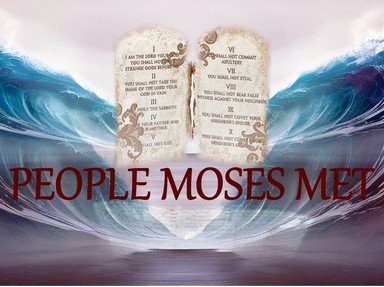
People Moses Met Trivia Quiz
Exodus Chapters 1 - 20
Many people helped Moses to reach his path. These are ten that either made it all possible or helped in his mission. You just need to match them with their descriptions. There is only one way in which they all fit.
This is a renovated/adopted version of an old quiz by author Liza543
A matching quiz
by Midget40.
Estimated time: 3 mins.